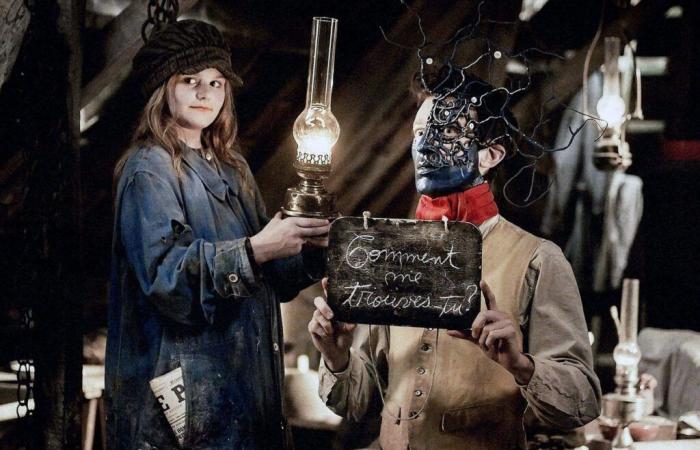From book to film. Cinema likes to seize jewels of literature to deliver its version, in images. A way of offering the reader the same story, in a new light. Here are five emblematic films, which are adaptations of a novel awarded the Goncourt Prize.
Léon Morin, priest
Goncourt Prize 1952.
The novel Léon Morin, priest, appeared in 1952 and was written by Beatrix Beck, André Gide’s secretary. Her book received the Goncourt Prize and recounts the affair between an atheist widow fleeing the Germans during the Occupation and a priest who gave her asylum.
Nine years after the publication of the novel, the filmmaker Jean-Pierre Melville delivered an adaptation, which remains famous, particularly for its casting. Indeed, the feature film brings together Emmanuelle Riva and Jean-Paul Belmondo.
In 2016, the book was again the subject of a film adaptation, with actors Romain Duris and Marine Vacth. Titled The Confessionthe film was directed by Nicolas Boukhrief.
The Roots of Heaven
Goncourt Prize 1956.
Romain Gary’s novel takes place in French Equatorial Africa, Morel, a French idealist from Fort Lamy, begins a fight to save the elephants from extinction that he considers to be our last “roots of the sky”. Minna, a barmaid in love with him, and Forsythe, a former British army commander, are the first to rally to his cause.
Director John Huston (The Maltese Falcon) adapted this novel with the help of Romain Gary, who was responsible for the screenplay himself.
The cast includes Juliette Gréco, Errol Flynn, Trevor Howard, Eddie Albert and Orson Welles.
Also discover:3 things to know about Kamel Daoud, author of the novel “Houris” and winner of the 2024 Goncourt Prize
The Lacemaker
Goncourt Prize 1974.
Written by Pascal Lainé, the novel The Lacemaker was adapted three years after its release by Claude Goretta. It was there that the public discovered for the first time the actress Isabelle Huppert, only 24 years old at the time.
The novel follows the story of Pomme, who follows an apprenticeship in a hairdressing salon. She will then meet François, a young student. While everyone opposes them, they will nevertheless come closer. Unfortunately, the breakup will be inevitable…
Goodbye up there
Goncourt Prize 2013.
Written by Pierre Lemaître. Goodbye, up thereis the first part of his trilogy Children of Disaster (Goodbye up there, Colors of fire,Mirror of our sorrows).
This first part was adapted by Albert Dupontel in 2018. The director received the César for best adaptation. Albert Dupontel delivers a film which traces the political, social and artistic ferment of the 1920s. On the casting side, the director and actor surrounded himself with Niels Arestrup, Laurent Lafitte, Émilie Dequenne, and Michel Vuillermoz. Goodbye up there, there are also impressive special effects and a magnificent reconstruction of Paris in the twenties.
When Pierre Lemaître discovered the film, he declared that it was “ the happiest of novelists “. What does it tell Goodbye up there ? It is November 1919. Two survivors of the trenches, Edouard Péricourt, an outstanding designer and Albert Maillard, a modest accountant, decide to set up a war memorial scam. Risky, daring and villainous enterprise, in France of the Roaring Twenties, which could even prove spectacular.
sweet song
Goncourt Prize 2019.
Written by Leïla Slimani. sweet song tells the story of Paul and Myriam, who have two young children. They hire Louise, an experienced nanny, so that Myriam can return to work. Louise shows herself to be devoted, conscientious, and voluntary, to the point that her presence occupies a central place in the family. Author Leïla Slimani was inspired by the Yoselyn Ortega affair, a tragic news story which took place in New York in 2012.






